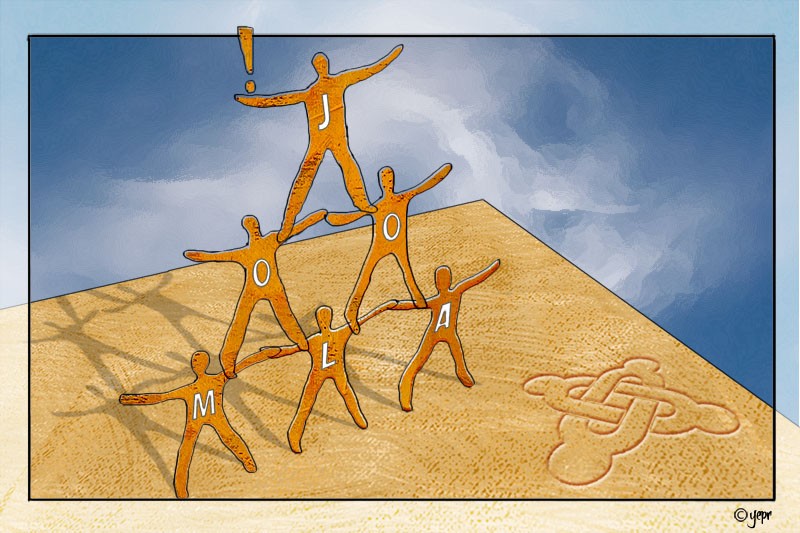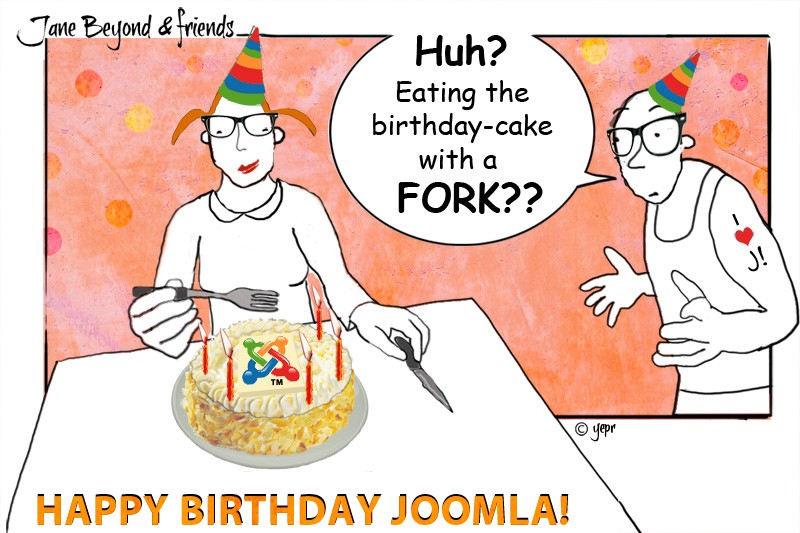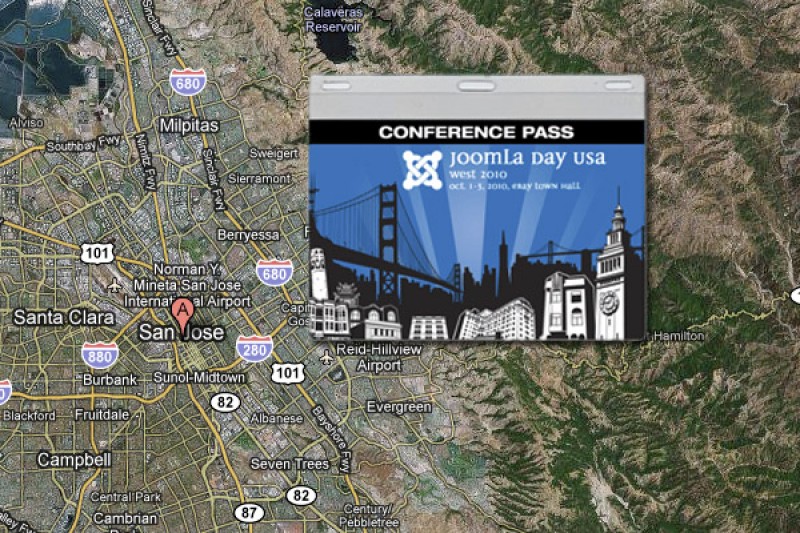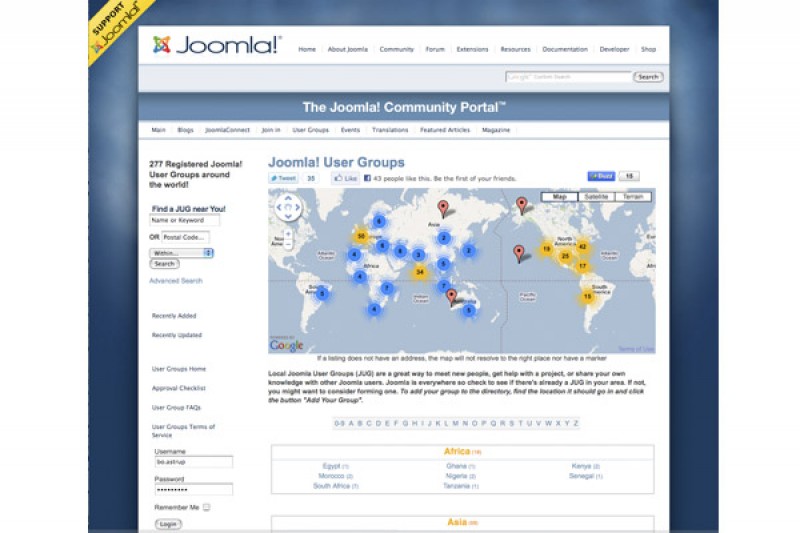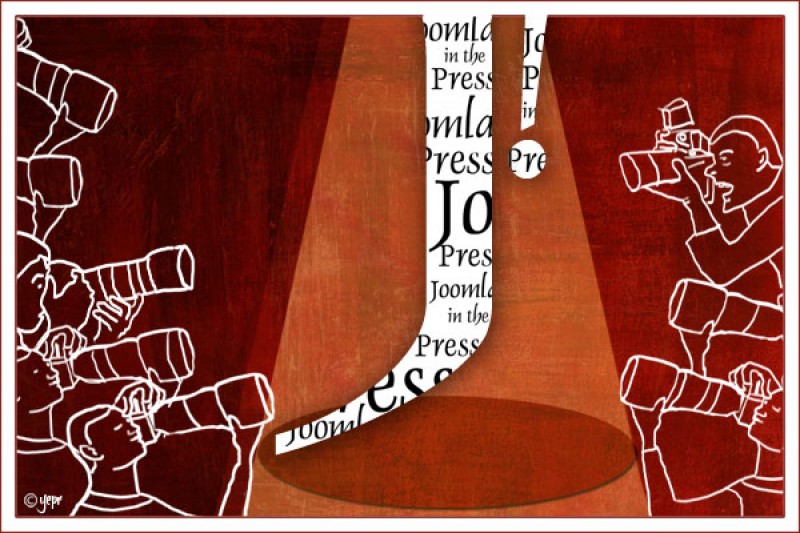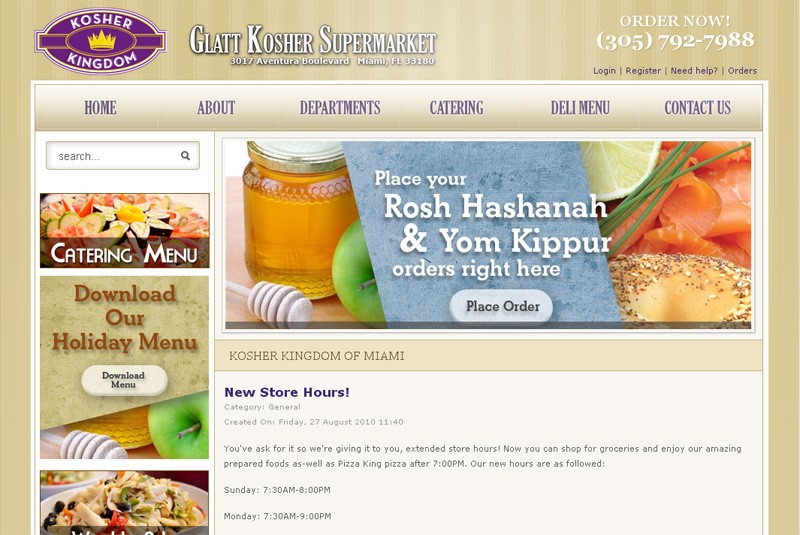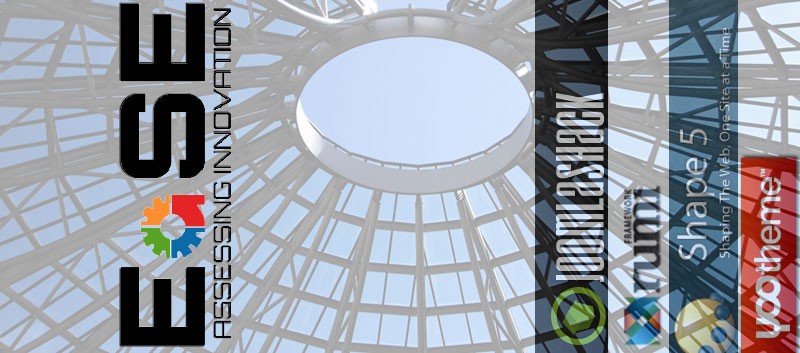This article explains from my point of view, why being part of the Joomla! Community can be of benefit for you. This is mainly aimed towards users that only use Joomla! for their own site development, just for fun, or don't fall under the professional/commercial umbrella.
We live in a world where we have adopted standards in the physical and material world. The software world is no different. Joomla! has also become one of the most popular CMSs in the world and yet it has ways to go before its extensions abide by the standards. But we are hopeful, as a growing number of Joomla! developers have embraced Web standards and we urge the user populace to take notice of this key attribute.
On quite a few occasions fellow developers ask me which is the best way to get started with Joomla! Development. Among other things, I always propose that they should have a complete reference of the Joomla! Framework API. The only book which was up to this task was "Mastering Joomla! 1.5 Extension and Framework Development", albeit a bit outdated since it was written when Joomla!1.5 was still in beta, some two and a half years ago. When Packt Publishing announced that they'd release the updated "Mastering Joomla! 1.5 Extension and Framework Development (Update)" I was ecstatic! So, here you go, I reviewed the new edition of the book and I'm willing to share my experience with you.
In our last issue we were discussing about how any Joomla! site belongs to a homogeneous population, why this is bad from a security perspective, and how to avoid that by changing your database table prefix. In this issue, we are going to expand a bit more, by making sure that another set of common characteristics – the Super Administrator user name and ID – are different than those a potential hacker would expect.
Many exciting Joomla! Days are coming in the near future all around the globe. While on-line communication and collaboration is great, nothing beats the opportunity of meeting in person. I am delighted to see so many Joomla! Days being announced from Nigeria to Denmark, Brazil to the US. So many chances to meet, share and learn.
Joomla! Day USA West 2010 in San J! California, October 1-3 and Joomla! Day DC October 16.
Have you visited the Joomla! User Groups pages on Joomla.org lately? For a few months, Sandra Warren has been working with a small team to re-design and revive the JUG team and the JUG pages on Joomla.org. After having read many reports about how hard it has been to register a new Joomla! User Group, it's been a great pleasure to see how the new JUG team has been able to streamline the registration process, clear the backlog and redesign the JUG pages. Many new features have been added to the JUG pages and more features will be added over the coming months.
The annual Open Source Awards are here again. You can nominate and vote for your favourite CMS and other Open Source projects in the Hall of Fame CMS category.
Welcome to Joomla! in the Press/Media. You will find links and short descriptions of where you can read recent articles about Joomla! in the Press and Media.
The third evolution of the Joomla! Community Magazine has taken on a life much different than its ancestors. The approach that has been taken with the new JCM team has provided the community with a resource that is already becoming invaluable. We wanted to take a moment to sit down with Paul Orwig, the lead editor, to find out where this approach came from and what's in store for the future.
Expression in Design, a small Florida web design firm that focuses on Joomla!, was contacted by Kosher Kingdom to redesign their difficult to manage website that was previously built on Flash. Expression not only gave them a fresh new look, but also integrated the Joomla! template into their online shopping cart system, and created a second template that is used for the in-store Point of Sale screens that are located at each checkout.
The Joomla! Setup is a series of interviews with developers in the Joomla! community, talking about the tools they use to get the job done, inspired by the setup. Can you tell who it is?
The Joomla! Community Leadership Team has the responsibility to manage the Joomla! forums, the Community website, the JCM, the Joomla! Resources Directory, the Joomla! Extensions Directory, Joomla! Events, and Joomla! User Groups. For this issue’s article from the Community Leadership Team, we want to recognize Pierre Gazzola and his significant volunteer contributions.
The Production Leadership Team manages all areas of Joomla! development, including documentation, design, coding, and development cycle. In addition, the Production Leadership Team manages all areas of the Joomla! project which relate to the production of the Joomla! CMS software and its documentation. For this issue’s article from the Production Leadership Team, we want to recognize Matt Thomas and his significant volunteer contributions.
In 1911, Ernest Shackleton was looking for recruits to join him on the Imperial Trans-Antarctic Expedition. The plan was to make the first ever overland crossing of the Antarctic continent from west to east.
Last month, in our article SEO, Joomla! and your Template we explained that before visiting the pages on a web site, search engines (for instance Google and Yahoo) check for the presence of instructions about the web site on its server. These instructions can be given by two files that are distributed with Joomla! and are normally found in the top level of your Joomla! installation: htaccess.txt and robots.txt.
Open Source Matters is the non-profit organization which was formed to manage the legal, financial, and trademark related matters for the Joomla! project. In this issue's Leadership connections article from Open Source Matters, OSM board member Steve Burge shares some of the work that OSM has been doing during July on behalf of the Joomla! project.
This is the final part of our current Template Tools series and we evaluate Joomlashack, Rumi, Shape5 and YooTheme together with two great articles. The first explains the various techniques of minification and compression (CSS & Javascript) used by Developers and the second examines those very important files - the robots.txt and .htaccess.
By accepting you will be accessing a service provided by a third-party external to https://magazine.joomla.org/
